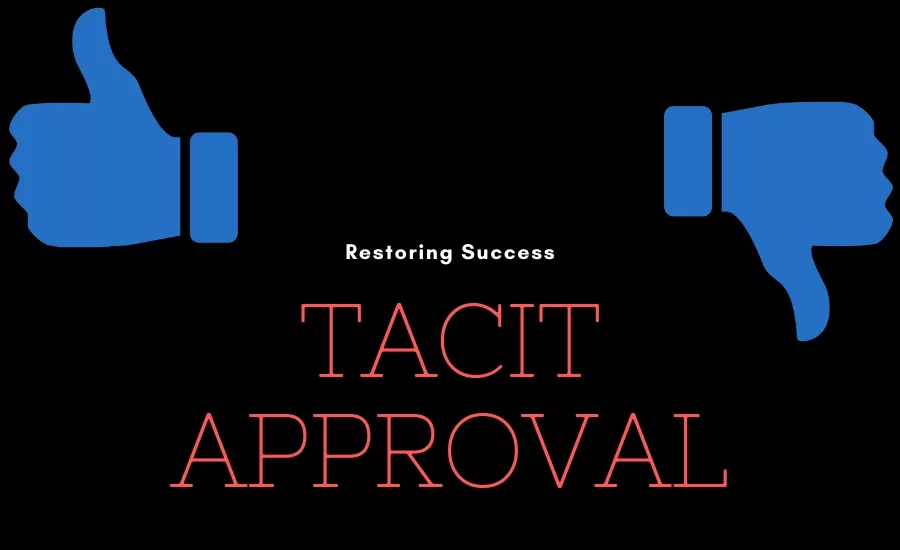Restoring Success: Lisa's New Year's Resolution
No more tacit approval.

I know that I do it; I do it too much. I know it is counterproductive to many objectives and I know that it sets a poor example for others in leadership positions. I am resolved to stop giving tacit approval.
What is tacit approval? It is giving “approval” by a lack of addressing something; the unintended consequence of silence is the implication of approval.
Let’s take a very simple example. Appropriate footwear in the restoration industry is a must. Someone reports to work and is walking around the warehouse in flip-flops. You see it, walk by it, say nothing and do nothing. As a leader, your silence is implying approval of wearing flip-flops to work. The next day someone else is wearing flip-flops; everyone in leadership sees it and says nothing. Next thing you know, you walk into work one day and you have a full-on flip-flop disaster with half the company in flip flops with toes exposed to danger everywhere.
Our culture and operating results are often a result of what everyone is consistently rallying around both in the “most important” operational movements to the values and behaviors. The things that stay front and center, get attention, and get talked about often become part of the organization’s everyday norm. Likewise, the details and performance issues that go unaddressed, also can quickly become the norm, not through formal policy or declaration but via tacit approval. Tacit approval is related to the concept of accountability; however, the result is that it is literally perceived as approved and acceptable behavior.
I personally have had this experience with the policy of personal cell phone use during work hours. This is prohibited but often goes unaddressed. Every so often, we see an excess of personal cell phone use, do a crack-down, a couple months later, the leadership (including myself) starts walking by as phone abuse happens and then once again, it is a problem. If it was consistently addressed in a positive and constructive manner by leadership, it would likely be less of a problem.
Tacit approval can be a problem with details like positioning cords that create a tripping hazards or larger performance issues like failure to update job documentation according to company standards. Why is tacit approval committed?
- Not wanting to seem difficult to please or picky.
- Lack of time.
- Our attention is drawn to other things.
- Avoidance of confrontation.
My resolution stems from my Dad. A retired insurance executive, he has been coaching and developing the leadership in our organization for many years and has bestowed much valuable wisdom upon us. Thoughts from Dad, Paul Pinchak, affectionately referred to as our Senior Consultant:
Too often, managers use the following thought process:
“I’ll talk to him next week…”
“I’ll wait until her review to bring this up.”
“It’s really not that bad, maybe he’ll do better next time.”
Managers and supervisors at all levels need to be aware that by not addressing a work-related performance issue, an individual is likely to assume what they are doing is acceptable. The longer it goes on; the longer the reinforcement that all is well. The manager who puts off (sometimes indefinitely) talking to their subordinate on an issue that needs to be addressed is doing their organization and the employee a disservice. Is it always easy? No. Is it part of a manager’s responsibilities? Yes.
After nearly 20 years of lecturers about giving tacit approval and my own awareness of what I am doing, I have made this my new year’s resolution. No more tacit approval or excuses for giving it.
I wish you the best restoring success in 2020 in both your goals and resolutions.
Looking for a reprint of this article?
From high-res PDFs to custom plaques, order your copy today!







